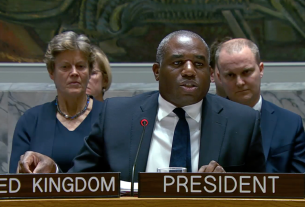This week, South Sudan finalized ratification of the African Union’s Protocol to the African Charter on Human and Peoples’ Rights on the Rights of Women in Africa (the Maputo Protocol), ending years of delay. While this ratification signals a commitment to gender equality, South Sudanese authorities need to adopt effective policies and strategies to ensure the protocol makes a difference in people’s lives.
Implementing the Maputo Protocol need not be as fraught as its ratification process, which began when the government signed it in January 2013. Parliament ratified the agreement in October 2017 but had reservations on several provisions, including those discouraging polygamy and on sexual and reproductive health, particularly the right to decide whether to have children, the number and spacing, and the rights to contraceptives and safe abortion care. In March 2023, following years of advocacy by national and regional women’s rights groups, President Salva Kiir finally signed the instruments of ratification.
As Human Rights Watch has repeatedly urged, the government should begin fulfilling the terms of the protocol by setting the minimum age of marriage at 18. While South Sudan’s 2011 Transitional Constitution and the 2008 Child Act prohibit child marriage, they do not set an age limit and the practice has continued unabated.
The government should also finalize the proposed Anti Gender-Based Violence Bill, pending before the minister of justice since 2020. The bill outlaws harmful customary and traditional practices and proposes effective procedures for enforcement and monitoring. The authorities have disregarded the problem of sexual and gender-based violence in South Sudan, with police routinely treating domestic and intimate-partner violence as a private matter, with complaints rarely resulting in intervention or prosecution.
Marital rape is also not criminalized under statutory or customary laws. The government should enact a family law to regulate marriage, divorce, custody, and property inheritance outside the customary legal system.
Conflict-related sexual violence has been persistent since 2013, without meaningful accountability. The government should take credible steps to end impunity including by working with the African Union to finally establish a long-delayed Hybrid Court for South Sudan.
Civil society groups should play a prominent role in the Maputo Protocol’s implementation, including by seeking the withdrawal of reservations through advocacy, shadow reports or strategic litigation.
Such steps could go a long way in advancing education, economic empowerment, health, and freedom from violence for women and girls in South Sudan.


